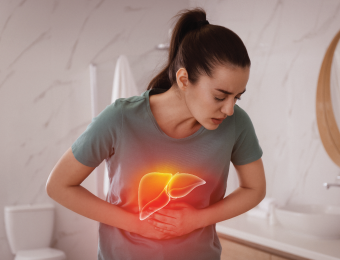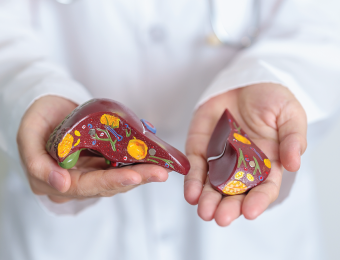Hepatitis:
Hepatitis is an inflammation that occurs in the liver and can result from various causes, including viral infections (hepatitis A/B/C/D/E), medication and toxin exposure, autoimmune responses leading to liver self-destruction, alcohol consumption, and non-alcoholic causes. This inflammation can lead to liver damage and various associated symptoms. Chronic hepatitis can result in abnormal liver function, cirrhosis, or an increased risk of liver cancer.
Symptoms of Hepatitis:
1. Acute Hepatitis: Acute hepatitis may not always present clear symptoms, but it can be identified by the following:- Fatigue and constant tiredness
- Abdominal pain
- Joint and muscle pain
- Loss of appetite
- Malaise and fever, typically over 38 degrees Celsius
- Itchy skin
- Dark urine, pale stools
- Jaundice, characterized by yellowing of the skin and eyes
Chronic hepatitis may not present clear symptoms until the liver begins to malfunction or liver cirrhosis develops. It can be detected through blood tests or may manifest symptoms such as:
- Ascites or swelling in the legs/feet/ankles
- Confusion
- Nausea or bloody stools
Complications of Hepatitis:
Complications of hepatitis may arise if the liver damage affects its function, leading to dangerous conditions such as abnormal bleeding, ascites, high blood pressure in the liver's portal vein system, kidney failure, brain-related symptoms, liver cancer, and even death.
Diagnosis of Hepatitis:
The diagnosis of hepatitis may involve regular health check-ups that reveal abnormal liver enzyme levels or symptoms of hepatitis. Initially, a medical history review and physical examination are conducted, followed by additional tests such as blood tests, abdominal ultrasound, and liver biopsy to identify any abnormal cell changes or inflammation in the liver.
Treatment of Hepatitis:
Treatment methods vary depending on the type, cause, and severity of hepatitis.
Prevention of Hepatitis:
While some types of hepatitis may not be preventable, such as autoimmune hepatitis, others, like viral hepatitis or alcohol-induced hepatitis, can be prevented by:
- Maintaining good hygiene, including washing hands regularly and avoiding sharing personal items or coming into contact with blood or fluids from infected individuals to reduce the risk of hepatitis virus infection spread.
- Choosing to eat cooked food, drinking boiled or clean water, to prevent various types of viral hepatitis infection.
- Practicing safe sex by using condoms to reduce the risk of hepatitis virus infection and prevent other sexually transmitted infections.
- Getting vaccinated to prevent hepatitis A and B virus infections.
- Consuming a balanced and nutritious diet in appropriate quantities to prevent fat accumulation in the liver.
- Avoiding alcohol consumption.
- Following the doctor's instructions carefully when taking medications and informing them or the pharmacist if suffering from liver disease or taking other medications.
- Being cautious when selecting supplements. Always carefully consider any supplement products before consumption.
 EN
EN
 TH
TH CN
CN






